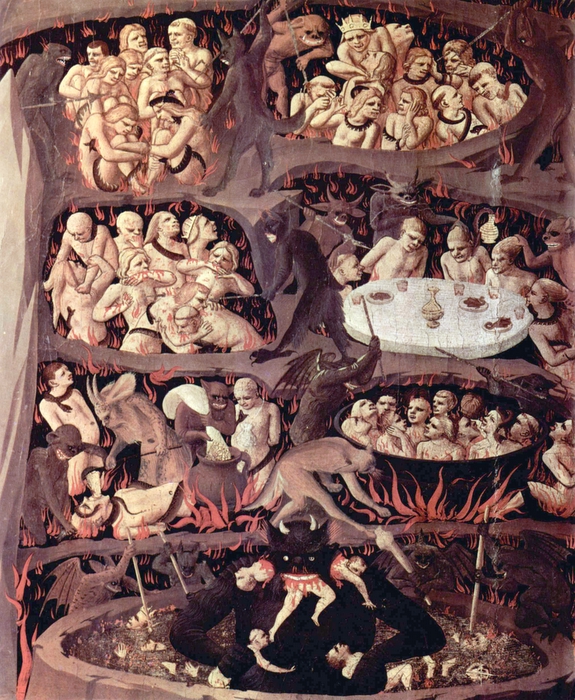Contemplating Hell - Not a Pleasant Thought
 |
| Scenes of the Last Judgment - Fra Angelico |
I have just submitted a 5000-plus word chapter for a book on
deconstructing hell. I was tasked with writing a “history of hell.” I accomplished
this task by omitting a whole lot of material. As you can imagine, writing about
hell isn’t the most pleasant of tasks. In fact, I try not to think much about
it. Personally, I long ago jettisoned belief in a literal hell, first embracing
what is known as annihilationism or conditional immortality. In many ways, this
view reflects much of what we find in the Bible, including the New Testament. Some
passages speak of eternal punishment, but it’s not a major topic. That said, a
majority of Christians embrace such a belief. There are reasons for that. For
one thing, it is the view most of us grew up with. It also answers a question on
the minds of many. That question has to do with justice.
Here’s the question that elicits interest in hell—If vengeance
belongs to God (Deut. 32:35; Rom. 12:19) then what happens if justice doesn’t
seem to be served in this life. That is, if Paul is correct when he writes: “Do
not take revenge, my dear friends, but leave room for God’s wrath, for it
is written: ‘It is mine to avenge; I will repay,’ says the Lord” (Rom.12:19 NIV), then shouldn’t we expect God act to bring justice. If the wicked don’t
suffer in this life, is death enough? You can understand why so many people
embrace this idea.
Personally, I lean toward a form of universalism that has
roots in Origen and Gregory of Nyssa, a view that all things will be restored
in the end, and that following Paul, God will reconcile the world to God’s self
in Christ (2 Cor. 5:16-19). Interestingly, Origen contemplated the restoration
of even Satan, but what about Hitler, Stalin, Pol Pot, and so many others whose
legacy is death and destruction? It’s easy for me, a white male living a
comfortable life in retirement to embrace universalism, but what if you’re
living in an oppressive, deadly situation? Consider the parable of the sheep and goats,
which many progressive Christians embrace because it speaks of the need to serve
Jesus by serving the least among us. But remember that in that parable (if it’s
really a parable) the goats, the ones who don’t serve the least among us and
therefore Jesus are sent away “into eternal punishment,” while the righteous
experience eternal life. These are parallel constructions. If life is eternal
for the sheep, is not the same true of the punishment of the wicked goats? (Mt.25:31-46). By the way, I'm preaching on this passage a month from now!
I am
grateful for the promise of grace, which overcomes my failures in life. I hold
out hope that God’s grace and mercy cover all. I believe that is true to God’s
character. Yet, I understand why many want to see God’s judgment (wrath) expended
on the oppressors of this world, especially when they are experiencing hell on
earth and don’t see their oppressors sharing their fate. So, if the wicked don’t
get their due in this life, shouldn’t they receive it in the next? Yes, I
understand, even if in the end I choose a different path. What are your thoughts?
Image Attribution: Angelico, fra, approximately 1400-1455. Scenes of the Last Judgment, from Art in the Christian Tradition, a project of the Vanderbilt Divinity Library, Nashville, TN. https://diglib.library.vanderbilt.edu/act-imagelink.pl?RC=47688 [retrieved July 20, 2022]. Original source: https://commons.wikimedia.org/wiki/File:Fra_Angelico_010.jpg.
Comments